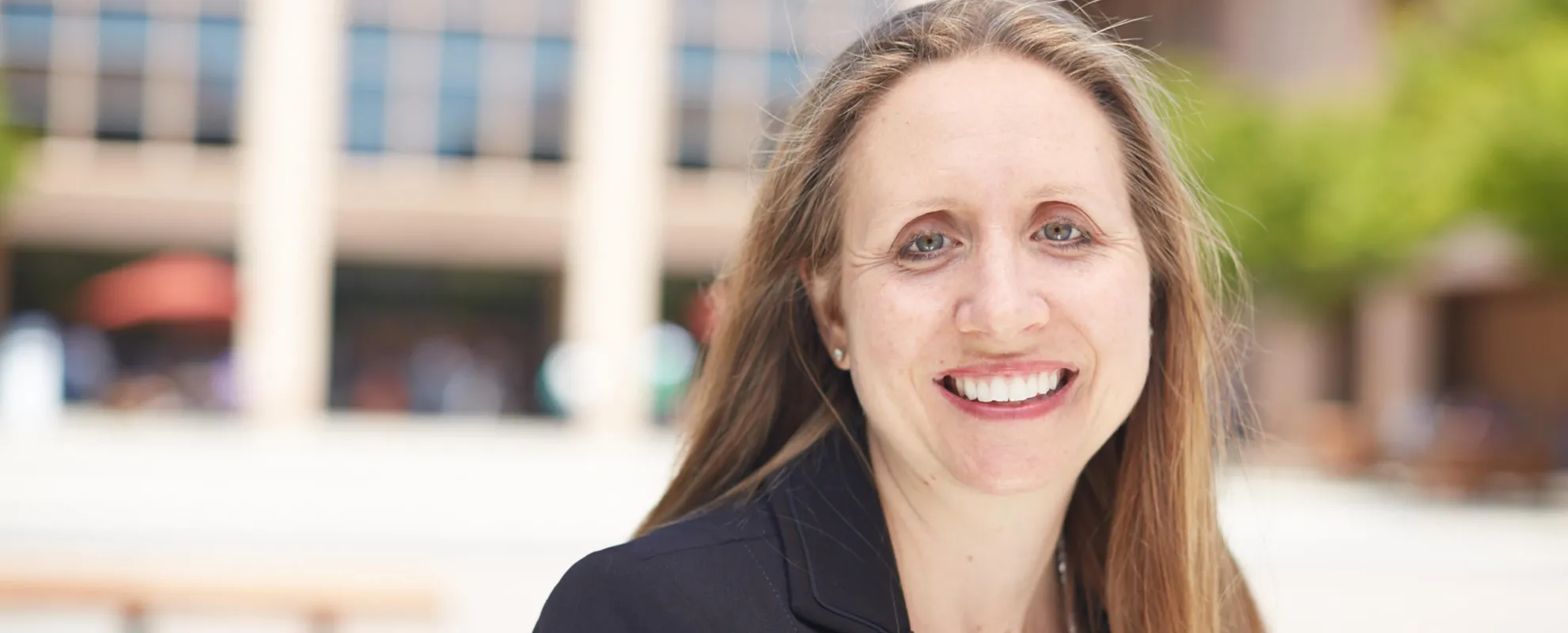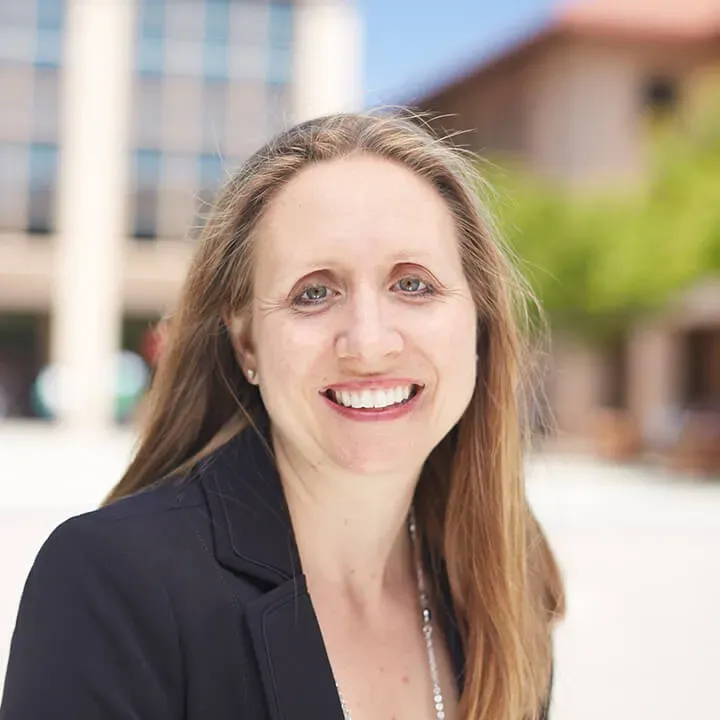Meditation, self-awareness, and the ability to laugh at her mistakes are three skills Julie Oberweis didn’t expect to acquire when she arrived at Stanford GSB.
“It was always my lifelong dream to come to Stanford,” Oberweis says. When she found herself at a turning point in her life, she decided that becoming a Sloan Fellow by undertaking the Stanford MSx Program would be the ideal way to put her previous business experience into perspective and explore what she wanted to tackle next.
The timing seemed perfect: She had just negotiated the sale of Stratigent, the analytics consulting firm for which she was the managing member, and her three children were in school. Then she discovered that she was pregnant with twins. Oberweis and her husband debated whether she should still attend, and came to the conclusion that the opportunity was too good to pass up and the babies would simply have to cooperate.
Bolstered by support from her family, and mindful of the comment of a friend and stay-at-home mom who told her, “You have to do it for the rest of us,” Oberweis persevered through the one-year program.
“It was a life-changing experience that I think requires you to just jump,” she explains. When it comes to an experience like MSx, where you can’t even fathom what possibilities will be available to you once you complete the program, overanalyzing the pros and cons of getting started simply doesn’t make sense.
The Stanford MSx Program delivered everything Oberweis had expected, and more. It broadened her knowledge, through the coursework; her mind, through classes in meditation, which she had previously shunned; and her network, through the invaluable connections she made with her classmates. She went from working in a small-company environment — where her network was narrowly constrained to the attorneys and accountants with whom she regularly interacted — to being closely connected to a community of experienced, international professionals.
“Having an instantaneous 90 people whom I completely respect and really want to maintain relationships with was really big for me,” Oberweis says. “Now if I have a problem in many, many different industries, I have somebody I can call.”
Among the things the classmates bonded over: their mistakes.
“You realize you’re not in this isolated place,” Oberweis says. “Here are all these individual stories, and the underlying theme is, ‘I screwed up and isn’t that funny, but look at where I am today.’ ”
Thanks to the bonds forged between Sloan Fellows and to the manner in which class discussions were structured, Julie believes that she walked away with a deeper understanding of how the way she acts can impact situations, how the world perceives her, and how she can use this information to her advantage. That knowledge is sure to give her more leverage in all of her future interactions, whether they take place in a boardroom, during a venture capital negotiation, or over the course of everyday life.
Photos by Elena Zhukova


